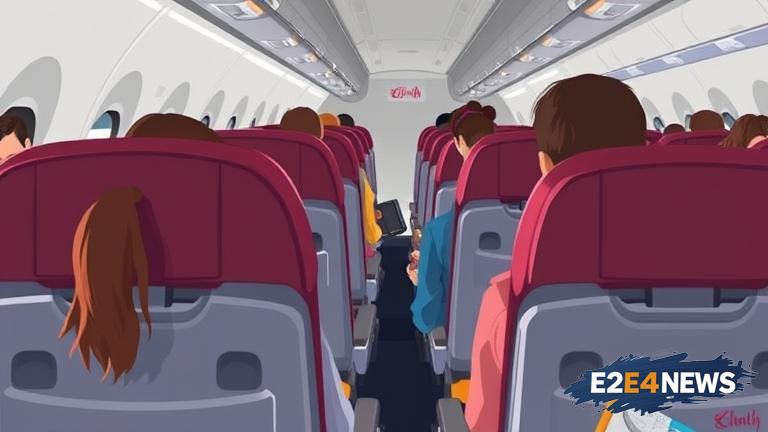When it comes to air travel, there are certain in-flight habits that can quickly turn a pleasant journey into a frustrating experience. From seat kicking to loud talking, there are many behaviors that can infuriate passengers and make them wish they had chosen a different seat. In this article, we will explore the top 9 in-flight habits that annoy passengers the most, and provide some tips on how to avoid being ‘that’ person on the plane. Firstly, seat kicking is a major pet peeve for many travelers, as it can be both annoying and painful. Another habit that gets on people’s nerves is when passengers recline their seats too far, encroaching on the personal space of the person behind them. Loud talking and laughing are also major annoyances, especially when passengers are trying to sleep or relax. In addition, strong perfumes or colognes can be overwhelming in the confined space of an airplane, and can trigger allergies or headaches in some people. Eating strong-smelling foods, such as fish or blue cheese, is also a no-no, as the smell can linger in the air and make other passengers feel queasy. Furthermore, not respecting personal space is a major issue, whether it’s invading someone’s armrest or touching their belongings without permission. Using electronic devices without headphones is another habit that can be frustrating, especially when the noise is loud and distracting. Not following basic hygiene rules, such as washing hands or covering the mouth when coughing, is also a concern, as it can spread germs and illnesses quickly. Lastly, being rude to flight attendants or other passengers is never acceptable, and can make the flight experience unpleasant for everyone involved. By being mindful of these habits and making an effort to be considerate of others, we can all contribute to a more positive and enjoyable flying experience. It’s also important to remember that everyone has different preferences and boundaries, and respecting those differences is key to a harmonious flight. Additionally, being aware of cultural and personal differences can help us navigate potentially sensitive situations and avoid unintentionally offending others. In conclusion, by avoiding these 9 in-flight habits, we can create a more considerate and respectful flying community, where everyone can feel comfortable and enjoy their journey. Whether you’re a frequent flyer or an occasional traveler, being mindful of your behavior and its impact on others can make all the difference. So next time you’re on a plane, take a moment to reflect on your own habits and how you can be a more considerate passenger. With a little awareness and effort, we can all contribute to a more positive and enjoyable flying experience. Moreover, airlines and flight attendants also play a crucial role in promoting in-flight etiquette, by providing clear guidelines and reminders to passengers. By working together, we can create a more respectful and considerate flying community, where everyone can feel valued and appreciated. Ultimately, the key to a harmonious flight experience is respect, empathy, and understanding, and by embracing these values, we can make air travel a more enjoyable and rewarding experience for all.
